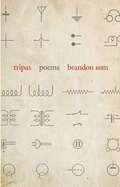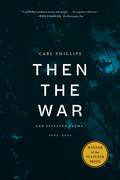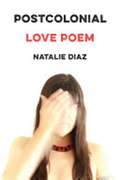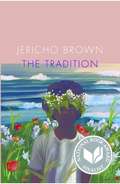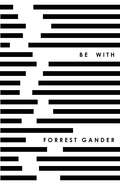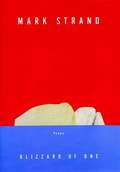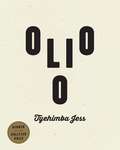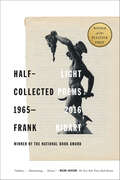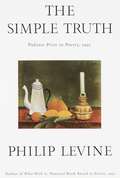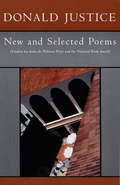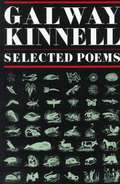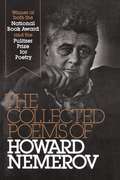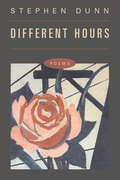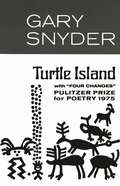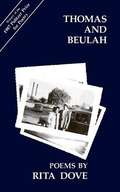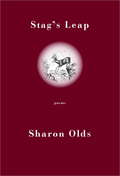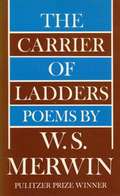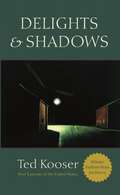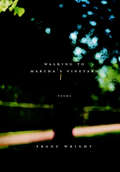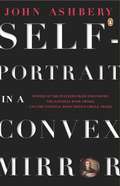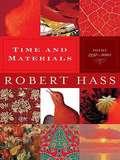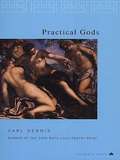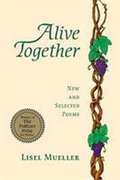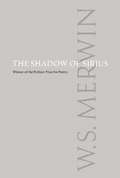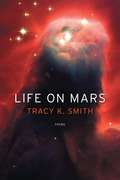Special Collections
Pulitzer Prize Award Winners
Description: Bookshare is pleased to offer the following titles, winners of the Pulitzer Prize Award. Note: Some drama winners are available and are listed under Fiction awards. #award
- Table View
- List View
Tripas
by Brandon SomWith Tripas, Brandon Som follows up his award-winning debut with a book of poems built out of a multicultural, multigenerational childhood home, in which he celebrates his Chicana grandmother, who worked nights on the assembly line at Motorola, and his Chinese American father and grandparents, who ran the family corner store. Enacting a como se dice poetics, a dialogic poem-making that inventively listens to heritage languages and transcribes family memory, Som participates in a practice of mem(oir), placing each poem's ear toward a confluence of history, labor, and languages, while also enacting a kind of "telephone" between cultures. Invested in the circuitry and circuitous routes of migration and labor, Som's lyricism weaves together the narratives of his transnational communities, bringing to light what is overshadowed in the reckless transit of global capitalism and imagining a world otherwise—one attuned to the echo in the hecho, the oracle in the orale.
Then the War
by Carl PhillipsA new collection of poems from one of America’s most essential, celebrated, and enduring poets, Carl Phillips's Then the War
I’m a song, changing. I’m a light
rain falling through a vast
darkness toward a different
darkness.
Carl Phillips has aptly described his work as an “ongoing quest;” Then the War is the next step in that meaningful process of self-discovery for both the poet and his reader. The new poems, written in a time of rising racial conflict in the United States, with its attendant violence and uncertainty, find Phillips entering deeper into the landscape he has made his own: a forest of intimacy, queerness, and moral inquiry, where the farther we go, the more difficult it is to remember why or where we started.
Then the War includes a generous selection of Phillips’s work from the previous thirteen years, as well as his recent lyric prose memoir, “Among the Trees,” and his chapbook, Star Map with Action Figures.
Ultimately, Phillips refuses pessimism, arguing for tenderness and human connection as profound forces for revolution and conjuring a spell against indifference and the easy escapes of nostalgia. Then the War is luminous testimony to the power of self-reckoning and to Carl Phillips as an ever-changing, necessary voice in contemporary poetry.
Postcolonial Love Poem
by Natalie DiazPostcolonial Love Poem is an anthem of desire against erasure. Natalie Diaz’s brilliant second collection demands that every body carried in its pages—bodies of language, land, rivers, suffering brothers, enemies, and lovers—be touched and held as beloveds. Through these poems, the wounds inflicted by America onto an indigenous people are allowed to bloom pleasure and tenderness: “Let me call my anxiety, desire, then. / Let me call it, a garden.” In this new lyrical landscape, the bodies of indigenous, Latinx, black, and brown women are simultaneously the body politic and the body ecstatic. In claiming this autonomy of desire, language is pushed to its dark edges, the astonishing dunefields and forests where pleasure and love are both grief and joy, violence and sensuality. Diaz defies the conditions from which she writes, a nation whose creation predicated the diminishment and ultimate erasure of bodies like hers and the people she loves: “I am doing my best to not become a museum / of myself. I am doing my best to breathe in and out. // I am begging: Let me be lonely but not invisible.” Postcolonial Love Poem unravels notions of American goodness and creates something more powerful than hope—in it, a future is built, future being a matrix of the choices we make now, and in these poems, Diaz chooses love.
The Tradition
by Jericho BrownThe Tradition details the normalization of evil and its history at the intersection of the past and the personal. Brown’s poetic concerns are both broad and intimate, and at their very core a distillation of the incredibly human: What is safety? Who is this nation? Where does freedom truly lie? Brown makes mythical pastorals to question the terrors to which we’ve become accustomed, and to celebrate how we survive.
Be With
by Forrest GanderForrest Gander’s first book of poems since his Pulitzer finalist Core Samples from the World: a startling look through loss, grief, and regret into the exquisite nature of intimacy
Drawing from his experience as a translator, Forrest Gander includes in the first, powerfully elegiac section a version of a poem by the Spanish mystical poet St. John of the Cross. He continues with a long multilingual poem examining the syncretic geological and cultural history of the U.S. border with Mexico.
The poems of the third section—a moving transcription of Gander’s efforts to address his mother dying of Alzheimer’s—rise from the page like hymns, transforming slowly from reverence to revelation. Gander has been called one of our most formally restless poets, and these new poems express a characteristically tensile energy and, as one critic noted, “the most eclectic diction since Hart Crane.”
Blizzard Of One
by Mark StrandStrand's poems occupy a place that exists between abstraction and the sensuous particulars of experience. It is a place created by a voice that moves with unerring ease between the commonplace and the sublime. The poems are filled with "the weather of leavetaking," but they are also unexpectedly funny. The erasure of self and the depredations of time are seen as sources of sorrow, but also as grounds for celebration. This is one of the difficult truths these poems dramatize with stoicism and wit. The winner of the Pulitzer Prize for Poetry, Blizzard of One is an extraordinary book--the summation of the work of a lifetime by one of our very few true masters of the art of poetry.
Winner of the 1999 Pulitzer Prize for Poetry
Olio
by Tyehimba JessWinner of the 2017 Pulitzer Prize in Poetry
Winner of the 2017 Anisfield-Wolf Book Award in Poetry
Winner of the 2017 Book Award from the Society of Midland Authors for Poetry
2016 National Book Critics Circle Award finalist for poetry
2017 PEN/Jean Stein Book Award finalist
2017 Kingsley Tufts Poetry Award finalist
Named a top poetry book of spring 2016 by Library Journal
Part fact, part fiction, Tyehimba Jess's much anticipated second book weaves sonnet, song, and narrative to examine the lives of mostly unrecorded African American performers directly before and after the Civil War up to World War I. Olio is an effort to understand how they met, resisted, complicated, co-opted, and sometimes defeated attempts to minstrelize them.
Half-Light
by Frank BidartGathered together, the poems of Frank Bidart perform one of the most remarkable transmutations of the body into language in contemporary literature. His pages represent the human voice in all its extreme registers, whether it’s that of the child-murderer Herbert White, the obsessive anorexic Ellen West, the tormented genius Vaslav Nijinsky, or the poet’s own.
Winner of the 2018 Pulitzer Prize for Poetry
The Simple Truth
by Philip LevineWritten in a voice that moves between elegy and prayer, The Simple Truth contains thirty-three poems whose aim is to weave a complex tapestry of myth, history (both public and private), family, memory, and invention in a search for truths so basic and universal they often escape us all.
Winner of the Pulitzer Prize
New and Selected Poems
by Donald Justice"He is one of our finest poets, " Anthony Hecht has said of Donald Justice. Winner most recently of a 1996 Lannan Literary Award, Justice has been the recipient of almost every contemporary grant and prize for poetry, from the Lamont to the Bollingen and the Pulitzer. The present volume replaces his 1980 Selected Poems and contains, in addition, poems from the last 15 years.
Pulitzer Prize Winner
Selected Poems
by Galway KinnellThe poems include two of Kinnell's most frequently reprinted poems, "Saint Francis and the Sow" and "After Making Love We Hear Footsteps" Kinnell draws for his poetry from experiences living in Vermont and New York, as well as from teaching in France, Australia, Iran, and many colleges and universities in this country. Kinnell is now retired from his position as the director of the Creative Writing Program at New York University.
Winner of the National Book Award
Pulitzer Prize Winner
The Collected Poems of Howard Nemerov
by Howard NemerovThe former Poet Laureate of the United States, Nemerov gives us a lucid and precise twist on the commonplaces of everyday life.The Collected Poems of Howard Nemerov won both the National Book Award and the Pulitzer Prize in 1978. "Howard Nemerov is a witty, urbane, thoughtful poet, grounded in the classics, a master of the craft. It is refreshing to read his work. . . . "—Minneapolis Tribune "The world causes in Nemerov a mingled revulsion and love, and a hopeless hope is the most attractive quality in his poems, which slowly turn obverse to reverse, seeing the permanence of change, the vices of virtue, the evanescence of solidities and the errors of truth."—Helen Vendler, New York Times Book Review
Different Hours
by Stephen DunnA wise and graceful new collection by one of our "major, indispensable poets" (Sidney Lea). The mysteries of Eros and Thanatos, the stubborn endurance of mind and body in the face of diminishment--these are the undercurrents of Stephen Dunn's eleventh volume. "I am interested in exploring the 'different' hours," he says, "not only of one's life, but also of the larger historical and philosophical life beyond the personal."
Winner of the 2001 Pulitzer Prize for Poetry.
Turtle Island
by Gary SnyderWinner of the Pulitzer Prize for Poetry (1975). These Pulitzer Prize-winning poems and essays by the author of No Nature range from the lucid, lyrical, and mystical to the political. All, however, share a common vision: a rediscovery of North America and the ways by which we might become true natives of the land for the first time.
Thomas And Beulah
by Rita DoveStory told in poems of the African Amarican poet's grandparents' marriage, migration to Akron, Ohio in the first half of the 20th Century.
Pulitzer Prize 1987.
Stag's Leap
by Sharon OldsIn this wise and intimate new book, Sharon Olds tells the story of a divorce, embracing strands of love, sex, sorrow, memory, and new freedom. As she carries us through the seasons when her marriage was ending, Olds opens her heart to the reader, sharing the feeling of invisibility that comes when we are no longer standing in love's sight; the surprising physical bond that still exists between a couple during parting; the loss of everything from her husband's smile to the set of his hip; the radical change in her sense of place in the world. Olds is naked before us, curious and brave and even generous toward the man who was her mate for thirty years and who now loves another woman. As she writes in the remarkable "Stag's Leap," "When anyone escapes, my heart / leaps up. Even when it's I who am escaped from, / I am half on the side of the leaver." Olds's propulsive poetic line and the magic of her imagery are as lively as ever, and there is a new range to the music--sometimes headlong, sometimes contemplative and deep. Her unsparing approach to both pain and love makes this one of the finest, most powerful books of poetry she has yet given us.
The Carrier of Ladders
by W. S. MerwinPulitzer Prize for Poetry 1971. Merwin has since won a National Book Award for his selected poems and the 2009 Pulitzer for the Shadow of Sirius.
Delights and Shadows
by Ted KooserTed Kooser is a master of metaphor, a poet who deftly connects disparate elements of the world and communicates with absolute precision. Critics call him a “haiku-like imagist” and his poems have been compared to Chekov’s short stories. In Delights and Shadows, Kooser draws inspiration from the overlooked details of daily life. Quotidian objects like a pegboard, creamed corn and a forgotten salesman’s trophy help reveal the remarkable in what before was a merely ordinary world.
Ted Kooser is the author of eight collections of poems and a prose memoir. He lives on a small farm in rural Nebraska.
Pulitzer Prize Winner
Walking to Martha's Vineyard
by Franz WrightIn this radiant new collection, Franz Wright shares his regard for life in all its forms and his belief in the promise of blessing and renewal. As he watches the “Resurrection of the little apple tree outside / my window,” he shakes off his fear of mortality, concluding “what death . . . There is only / mine / or yours,– / but the world / will be filled with the living. ” In prayerlike poems he invokes the one “who spoke the world / into being” and celebrates a dazzling universe–snowflakes descending at nightfall, the intense yellow petals of the September sunflower, the planet adrift in a blizzard of stars, the simple mystery of loving other people. As Wright overcomes a natural tendency toward loneliness and isolation, he gives voice to his hope for “the only animal that commits suicide,” and, to our deep pleasure, he arrives at a place of gratitude that is grounded in the earth and its moods.
Self-Portrait in a Convex Mirror
by John AshberyA collection of poetry by John Ashbery.
Winner of the National Book Award.
Pulitzer Prize Winner
Time and Materials
by Robert HassThe poems in Robert Hass's new collection-his first to appear in a decade-are grounded in the beauty and energy of the physical world, and in the bafflement of the present moment in American culture. This work is breathtakingly immediate, stylistically varied, redemptive, and wise.
His familiar landscapes are here—San Francisco, the Northern California coast, the Sierra high country—in addition to some of his oft-explored themes: art; the natural world; the nature of desire; the violence of history; the power and limits of language; and, as in his other books, domestic life and the conversation between men and women. New themes emerge as well, perhaps: the essence of memory and of time.
The works here look at paintings, at Gerhard Richter as well as Vermeer, and pay tribute to his particular literary masters, friend Czeslaw Milosz, the great Swedish poet Tomas Tranströmer, Horace, Whitman, Stevens, Nietszche, and Lucretius. We are offered glimpses of a surprisingly green and vibrant twenty-first-century Berlin; of the demilitarized zone between the Koreas; of a Bangkok night, a Mexican desert, and an early summer morning in Paris, all brought into a vivid present and with a passionate meditation on what it is and has been to be alive. "It has always been Mr. Hass's aim," the New York Times Book Review wrote, "to get the whole man, head and heart and hands and everything else, into his poetry."
Winner of the 2007 National Book Award for Poetry, and the 2008 Pulitzer Prize for Poetry.
Practical Gods
by Carl DennisWinner of the 2001 Pulitzer Prize for Poetry. Practical Gods is the eighth collection by Carl Dennis, a critically acclaimed poet and recent winner of one of the most prestigious poetry awards, the Ruth Lilly Prize. Carl Dennis has won acclaim for "wise, original, and often deeply moving" poems that "ease the reader out of accustomed modes of seeing and perceiving" (The New York Times). Many of the poems in this new book involve an attempt to enter into dialogue with pagan and biblical perspectives, to throw light on ordinary experience through metaphor borrowed from religious myth and to translate religious myth into secular terms. While making no claims to put us in touch with some ultimate reality, these clear, precise, sensitive poems help us to pay homage to the everyday household gods that are easy to ignore, the gods that sustain life and make it rewarding. .
Alive Together
by Lisel MuellerIn a collection that represents over thirty-five years of her writing life, this distinguished poet explores a wide range of subjects, which include her cultural and family history and reflect her fascination with music and the discoveries offered by language. In fact, her book is a testament to the miraculous power of language to interpret and transform our world. It is a testament that invites readers to share her vision of experiences we all have in common: sorrow, tenderness, desire, the revelations of art, and mortality - "the hard, dry smack of death against the glass." To this community Mueller presents moments after moment where the personal and public realms intersect, where lives ranging from her own to those of Mary Shelley and Anton Webern illuminate the ways in which history shapes our lives. In "Brendel Playing Schubert," Mueller's breathtaking linguistic virtuosity reminds us how music can transport us out of ourselves and into "the nowhere where the enchanted live"; in "Midwinter Notes," the crepuscular world, stripped of its veil, shines forth as a signal from some realm where the sense of things may be revealed. In the title piece Mueller brings a sense of enduring and unclouded wonder to a recognition of all those whose lives might have been our own.
Pulitzer Prize Winner
The Shadow of Sirius
by W. S. MerwinThe nuanced mysteries of light, darkness, temporality, and eternity interweave throughout Merwin's newest collection of poems. "I have only what I remember," he admits, and his memories are focused and profound: well-cultivated loves, the distinct qualities of autumnal light, memories of Pennsylvania miners, a conversation with a boyhood teacher, and "our long evenings and astonishment." From the universe's chiaroscuro shadows, Merwin once again calls upon the language of surprise to illuminate existence. He is writing at the peak of his powers.
Pulitzer Prize Winner
Life on Mars
by Tracy K. SmithLife on Mars imagines a soundtrack for the universe to accompany the discoveries, failures, and oddities of human existence. In these brilliant new poems, Tracy K. Smith envisions a sci-fi future sucked clean of any real dangers, contemplates the dark matter that keeps people both close and distant, and revisits the kitschy concepts like "love" and "illness" now relegated to the Museum of Obsolescence.
Pulitzer Prize Winner
